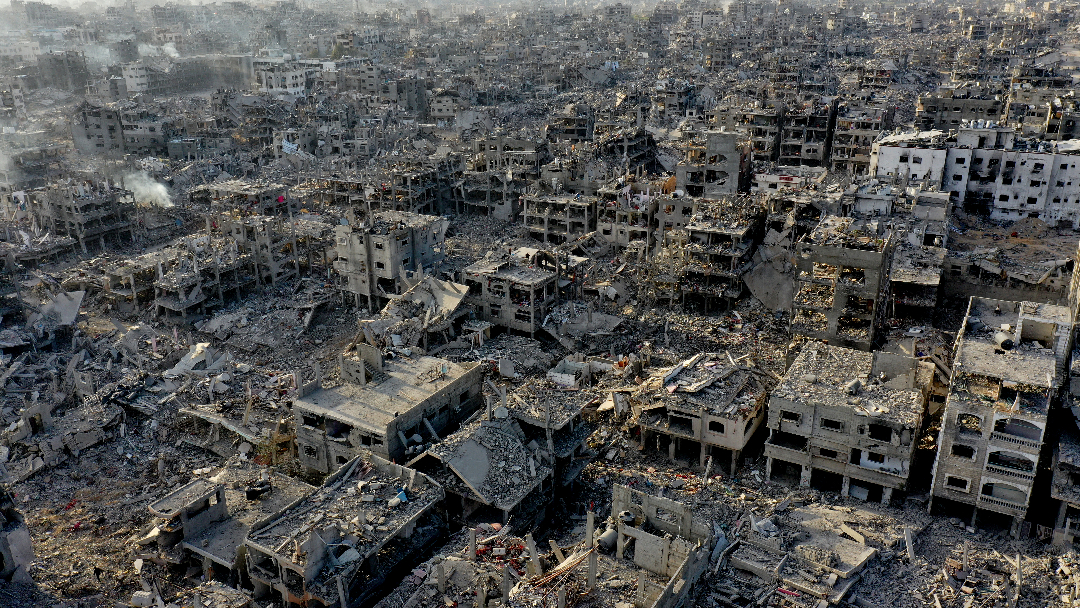In late November, shortly after the United States began condemning the International Criminal Court for charging senior Israeli leaders with war crimes and crimes against humanity for overseeing the genocide of Palestinians in Gaza, a reporter asked the outgoing State Department spokesperson Matthew Miller an instructive question: “Who can judge Israel? . . . Which organization in the world can hold Israel accountable for any accusation?” Miller, whose smirking face represents for many the shamelessness of the Biden administration’s support for Israeli’s atrocities, withheld judgment: “Everyone is able to reach their own conclusions.”
In raising and resisting the possibility of judgment, the exchange neatly centered an essential tendency that enabled Israel’s prolonged and deliberate devastation of Gaza over the past fifteen months: the near total refusal of the American political class to adjudicate the most basic questions of right and wrong. The uncertain and long overdue cease-fire now taking effect may finally put an end to the incessant spectacle of Israeli brutalities in Gaza committed openly before the world.
For more than a year, the withholding of judgment appeared as a strikingly consistent rhetorical posture among the many US leaders who have clamored to arm, fund, and provide diplomatic cover to Israel’s widely reported mass atrocities in Gaza. As early as December of 2023, after two months of Israeli attacks had already killed more than 14,000 Palestinians at a rate of slaughter higher than in any other recent conflict in the world — a time when the Israeli president claimed “this rhetoric of ‘unaware uninvolved, civilians’ is not true” and scholars around the world warned of the imminent risk of…
Auteur: Jake Sonnenberg

